
Mindfulness Techniques from DBT for Addiction Recovery
Understanding the Role of Mindfulness in Addiction Recovery
Mindfulness techniques derived from Dialectical Behavior Therapy (DBT) stand as powerful tools in the journey of addiction treatment. These practices focus on cultivating present-moment awareness, emotional regulation, and acceptance—elements crucial for overcoming substance dependence and preventing relapse. This article explores how mindfulness, integrated into DBT, offers structured strategies to manage cravings, cope with triggers, and foster resilient mental health during recovery.
Practical Ways to Practice Mindfulness in Recovery
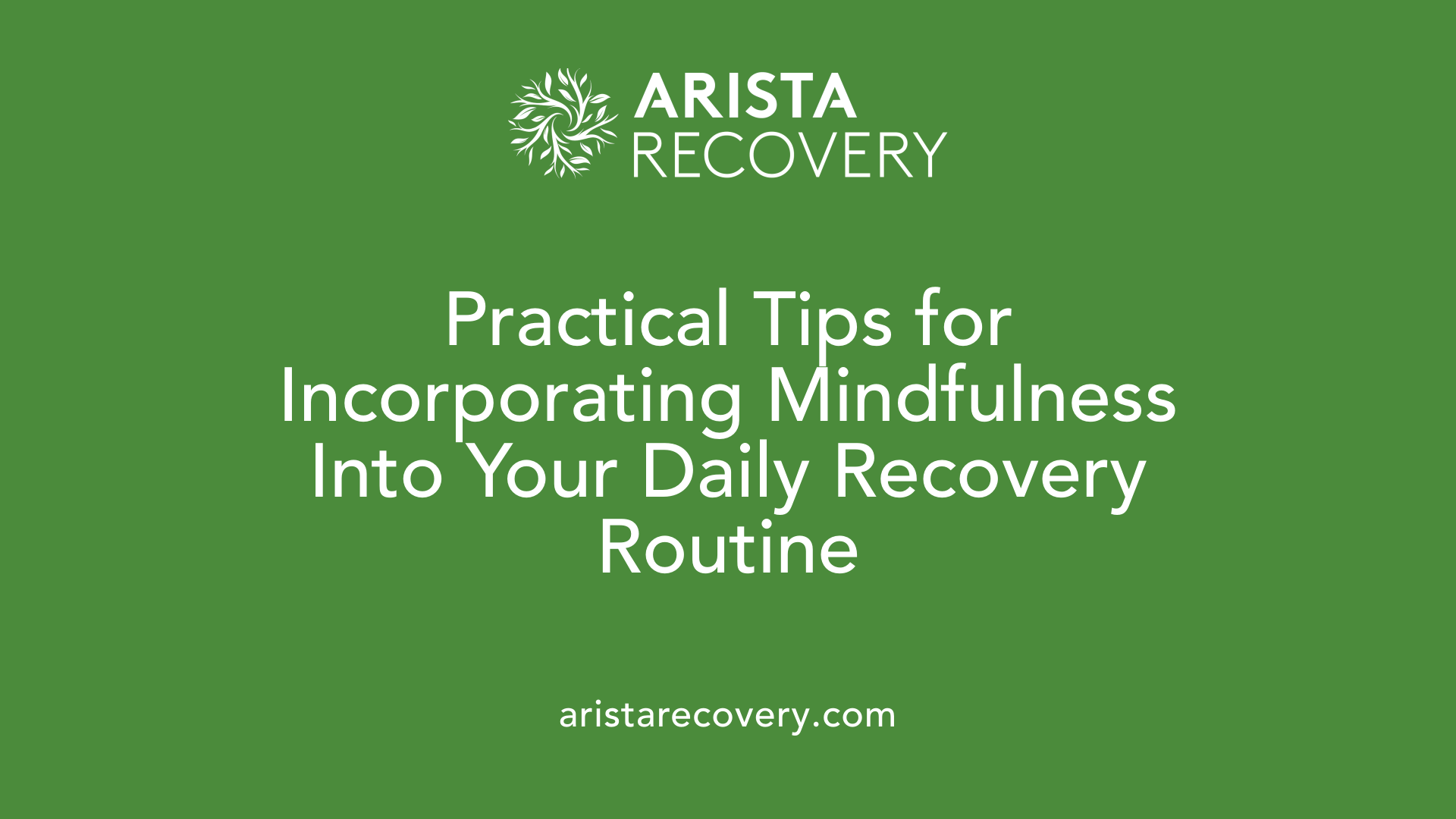
How can mindfulness be practiced in recovery from addiction?
Practicing mindfulness in recovery involves engaging in specific exercises that promote present-moment awareness. Techniques such as focusing on the breath, being fully present in daily activities, and observing thoughts without judgment are fundamental.
One common method is mindful breathing, where individuals pay close attention to each inhale and exhale. This simple practice can help ground individuals during moments of craving or emotional overwhelm.
Being present in the moment means engaging fully with whatever activity one is doing, whether it's eating, walking, or listening. This fosters a nonjudgmental attitude towards feelings and thoughts, reducing automatic reactions like substance use.
Observing thoughts without judgment involves noticing mental events objectively without labeling them as good or bad. This awareness can reduce rumination and emotional reactivity, making it easier to cope with stress and triggers.
Integrating these mindfulness techniques into daily routines can significantly aid recovery. For example, starting the day with a few minutes of mindful breathing or incorporating mindful pauses before reacting to challenging situations.
Studies suggest that consistent mindfulness and meditation practice help rewire the brain, enhancing self-control, emotional regulation, and awareness—crucial components for staying sober.
Further practices such as expanding compassion, practicing stillness, and cultivating gratitude can bolster emotional resilience and mental clarity. These activities support overall well-being, making it easier to handle relapse triggers.
By turning mindfulness into a habitual part of everyday life, individuals improve their capacity to respond thoughtfully rather than react impulsively, supporting a sustained recovery journey. Overall, mindfulness encourages a compassionate, nonjudgmental awareness of the present, empowering those in recovery to build a healthier relationship with themselves and their environment.
Understanding Mindfulness-Based Interventions for Addiction
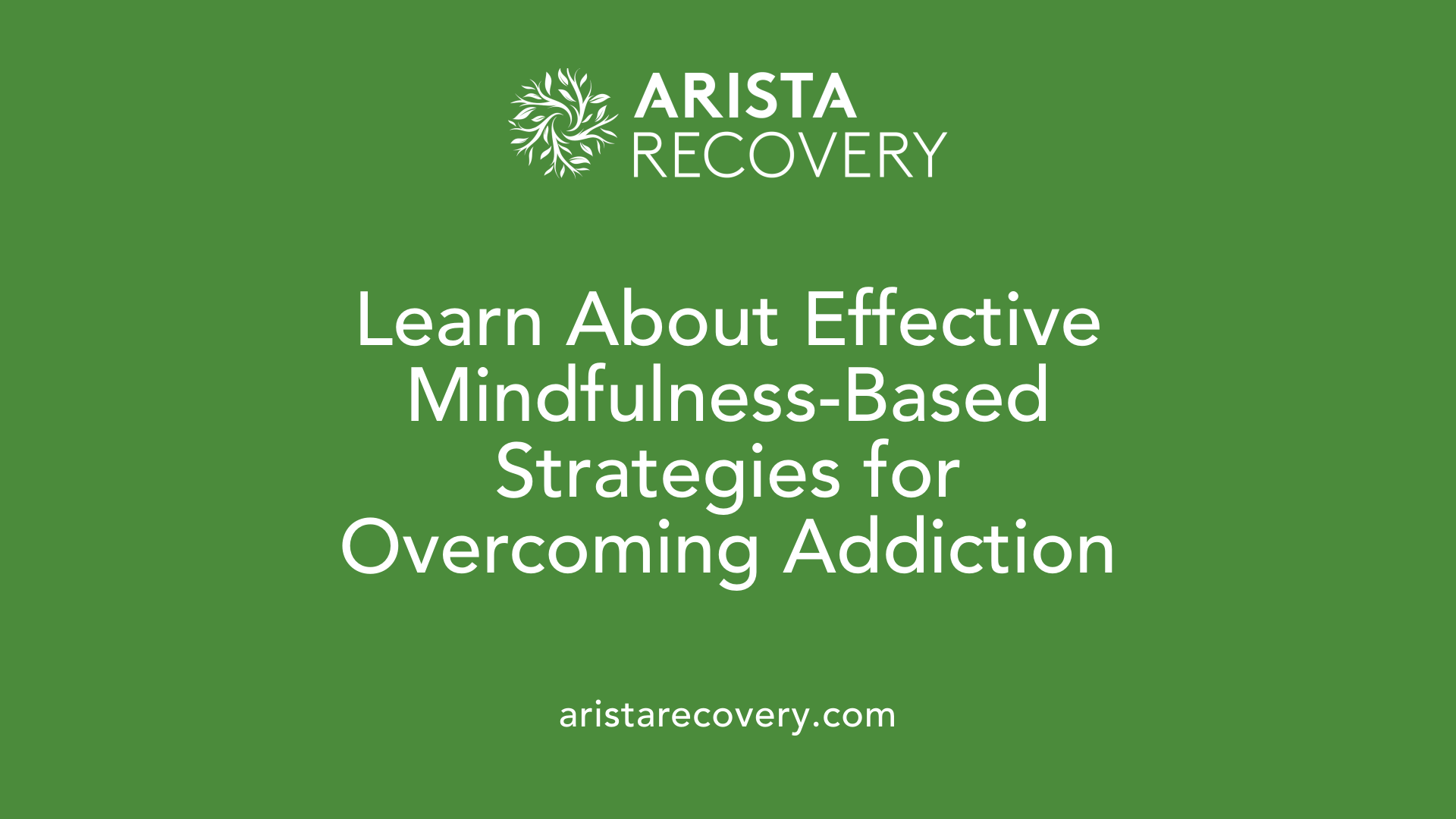
What are mindfulness-based interventions for addiction?
Mindfulness-based interventions for addiction center on training individuals in mindfulness meditation practices that highlight present-moment awareness without judgment. Derived from ancient Buddhist practices and adapted for modern therapy, these approaches include techniques like mindful breathing, body scan meditation, and observation of thoughts and sensations.
These practices aim to foster a non-reactive space for individuals, helping them recognize cravings and emotional triggers without automatically acting on them. Programs such as Mindfulness-Based Stress Reduction (MBSR), Mindfulness-Based Cognitive Therapy (MBCT), and specialized adaptations like Mindfulness-Based Relapse Prevention (MBRP) are widely used.
How do mindfulness practices improve psychological variables?
Engaging in mindfulness exercises can lead to significant improvements in mental health and emotional regulation. Research indicates that mindfulness meditation can reduce symptoms of depression, anxiety, and stress—all of which are common in individuals struggling with addiction.
Mindfulness also enhances attention, working memory, and cognitive flexibility. It helps individuals become less emotionally reactive and more aware of their internal states, including cravings and negative thoughts. This awareness allows better management of impulses and reduces the likelihood of relapse.
How does mindfulness contribute to relapse prevention?
By promoting non-judgmental awareness of cravings and emotional states, mindfulness helps individuals respond to triggers more adaptively. Techniques teach that cravings are temporary and manageable, reducing the risk of automatic substance use.
Studies show that regular mindfulness practice can lower relapse rates—sometimes by as much as 30%. It encourages ongoing self-awareness and acceptance, building resilience against stress and emotional upheaval. Incorporating these practices into daily routines and therapy enhances long-term recovery, supporting sustained abstinence.
| Aspect | Description | Additional Notes |
|---|---|---|
| Techniques | Breathing exercises, body scans, observing thoughts | Focus on present moment, non-judgment |
| Benefits | Reduces cravings, lowers stress, improves mood | Critical during detox and recovery |
| Outcomes | Decrease in relapse rates, better emotional regulation | Supported by research and clinical trials |
As part of a holistic treatment approach, mindfulness-based therapies integrate with other modalities like cognitive-behavioral therapy (CBT) and dialectical behavior therapy (DBT). These combined efforts build greater emotional resilience and empower individuals to maintain sobriety over the long term.
Mindfulness in DBT and Its Support Role in Recovery
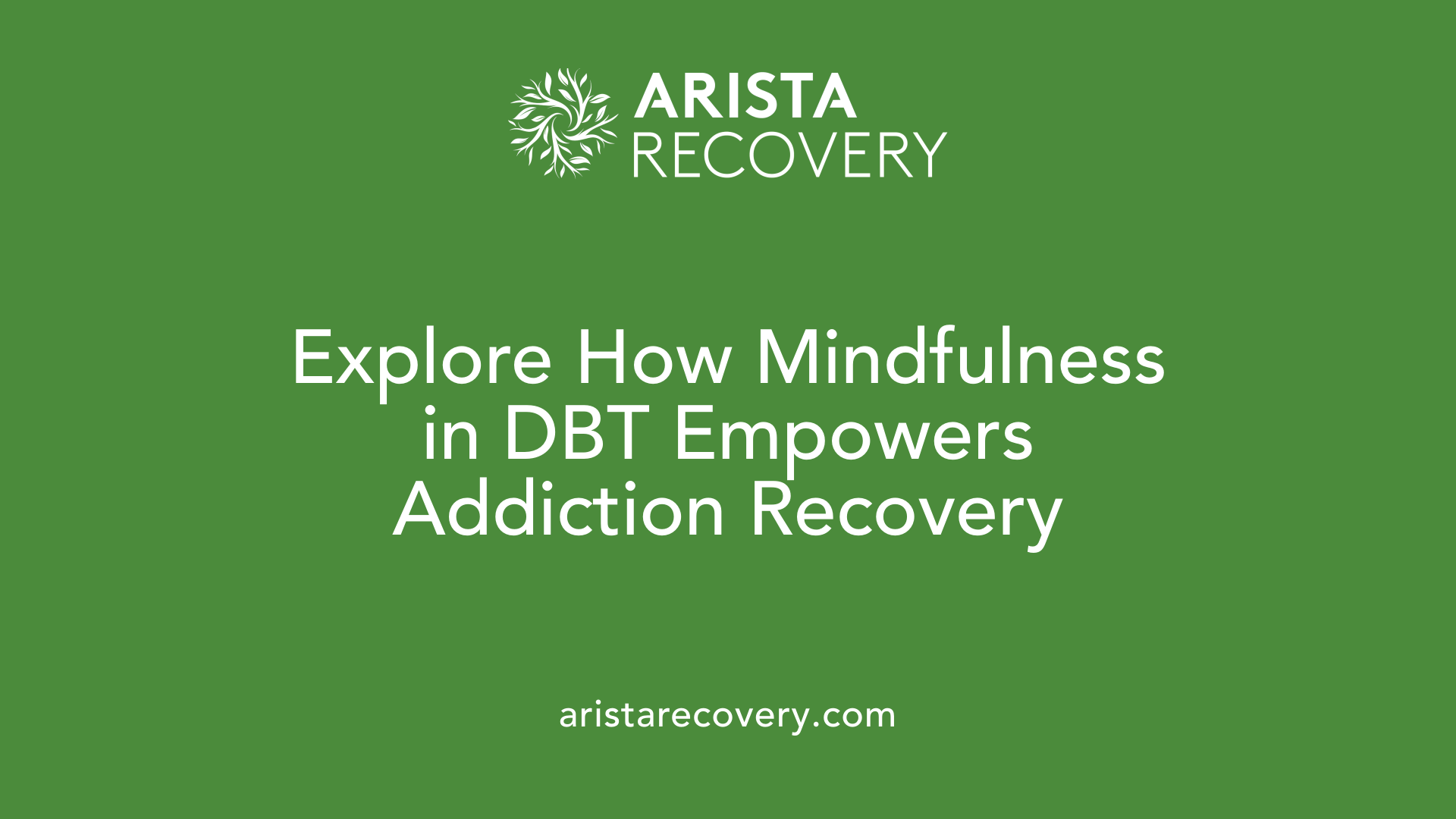
What is mindfulness in DBT and how does it support addiction recovery?
Mindfulness in Dialectical Behavior Therapy (DBT) involves paying close attention to the present moment, observing thoughts, feelings, and bodily sensations with openness and without judgment. This skill forms the core of DBT and serves as a powerful tool in addiction treatment.
By practicing mindfulness, individuals learn to acknowledge their internal experiences without criticism or suppression. This acceptance helps them recognize emotional and physical cues early, leading to better emotional regulation. When emotions are observed non-judgmentally, it becomes easier to tolerate discomfort and reduce impulsive behaviors such as substance use.
In the context of recovery, mindfulness supports managing cravings by teaching individuals to see them as temporary and manageable rather than overwhelming or uncontrollable. It also facilitates emotional regulation by helping clients understand their feelings instead of reacting automatically.
Furthermore, mindfulness fosters acceptance of difficult circumstances, which is essential during detox and recovery. It encourages facing reality as it is, reducing resistance and emotional reactions that can trigger relapse.
Although cultivating mindfulness demands consistent effort and patience, its role in strengthening self-awareness and reducing reactivity makes it an invaluable component of addiction recovery. Overall, mindfulness in DBT enhances the ability to stay present, make conscious choices, and build resilience against relapse.
Key Mindfulness Skills Taught in DBT for Addiction
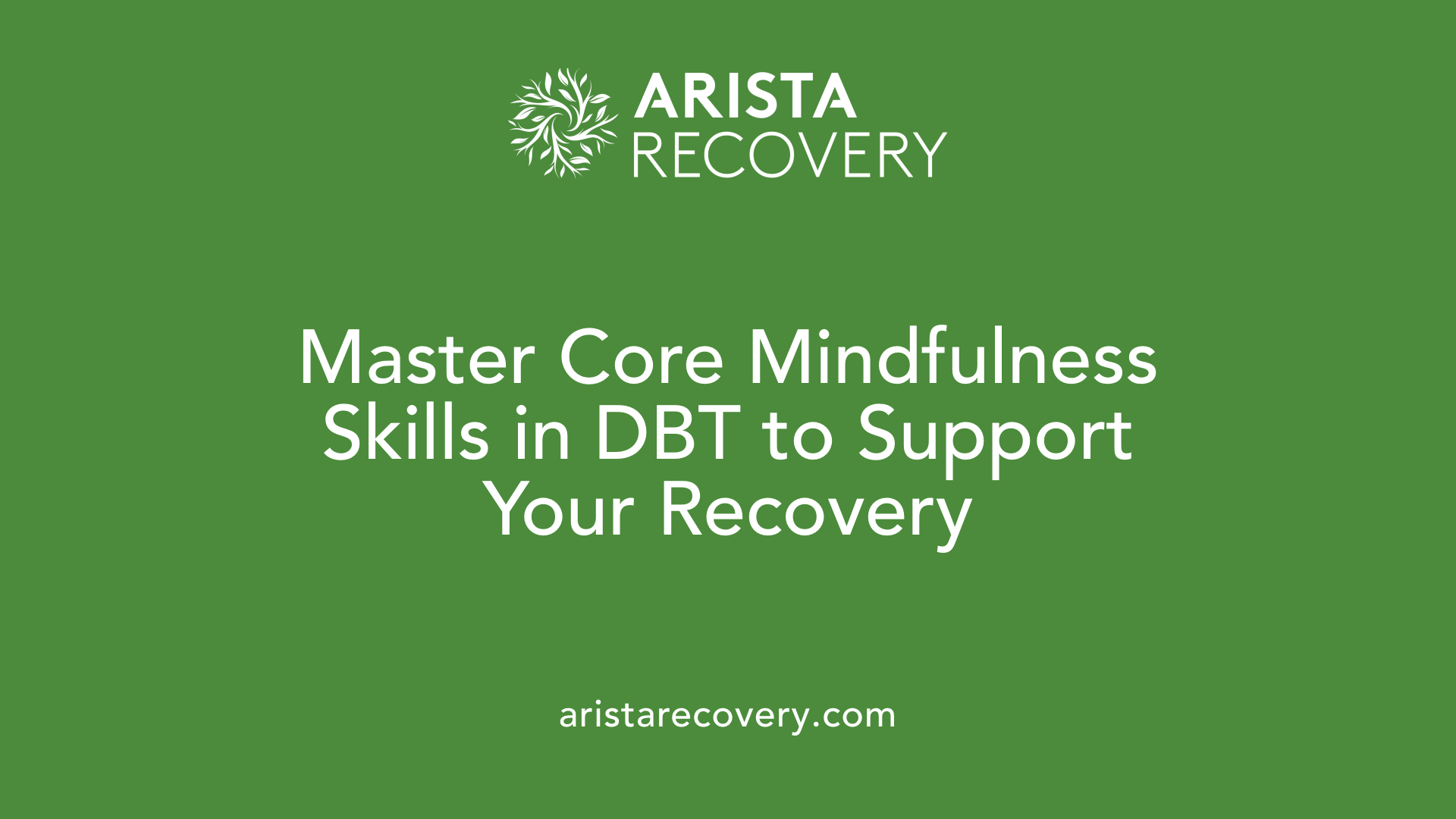
What are the key mindfulness skills taught in DBT for addiction?
In Dialectical Behavior Therapy (DBT) tailored for addiction, several core mindfulness skills are emphasized to help individuals stay present, aware, and non-judgmental of their internal and external experiences.
One of the fundamental skills is observing and describing. Clients learn to pay close attention to their thoughts, feelings, bodily sensations, and environmental cues without immediately reacting. This practice encourages awareness and helps prevent impulsive behaviors triggered by overwhelming emotions.
Another crucial skill is participating in the present. Rather than being distracted by past regrets or future worries, individuals focus on the here and now. Engaging fully in activities fosters mindfulness and minimizes substance cravings driven by escape or avoidance.
A highly utilized technique in DBT is Wise Mind, which blends emotional intuition with rational thought. By connecting with Wise Mind, clients can make balanced decisions during crises, reducing impulsiveness and facilitating healthier coping strategies.
The STOP skill is a prominent mindfulness tool designed to interrupt automatic reactions. It involves four steps:
- Stop: Cease the impulsive action.
- Take a breath: Ground oneself with a deep breath.
- Observe: Notice thoughts, feelings, sensations, and the environment.
- Proceed mindfully: Choose a deliberate, balanced response.
This method aids in managing overwhelming cravings and emotional surges, supporting abstinence and emotional stability.
Lastly, non-judgmental awareness is cultivated throughout all these practices. Clients are encouraged to accept their experiences without self-criticism or blame. This fosters compassion, reduces internal conflict, and enhances resilience during recovery.
Incorporating these mindfulness skills into daily routines equips individuals with tools to handle stress, cravings, and emotional upheavals effectively. Over time, this promotes sustained sobriety and emotional well-being.
Supporting Emotional Regulation Through Mindfulness
How do mindfulness practices support emotional regulation during addiction recovery?
Mindfulness techniques play a vital role in strengthening emotional regulation throughout addiction recovery. By cultivating a present-focused and non-judgmental awareness of thoughts, feelings, and bodily sensations, individuals learn to recognize and accept their emotional states without immediate reaction. This awareness creates a pause, enabling more thoughtful responses rather than impulsive reactions such as substance use.
Neuroscientific research shows that mindfulness enhances activity in areas of the brain linked to self-control and emotional regulation, particularly the anterior cingulate cortex (ACC) and medial prefrontal cortex (mPFC). These regions help manage stress and regulate negative emotions, which are often triggers for relapse. As individuals practice mindful breathing, meditation, or movement exercises, they strengthen neural pathways that support calmness and emotional resilience.
In addition, mindfulness reduces stress and anxiety, common catalysts for relapse, by activating the parasympathetic nervous system — the body’s relaxation response. This reduction in emotional distress allows individuals to handle cravings and emotional upheavals more effectively. Practicing acceptance through mindfulness also shifts attention from self-criticism to self-compassion, fostering a kinder attitude toward oneself during vulnerable moments.
Furthermore, mindfulness influences how the brain processes rewards, decreasing the salience of drug-related stimuli and increasing sensitivity to natural, healthier rewards. This shift diminishes cravings and encourages a focus on long-term wellbeing. Overall, mindfulness supports the development of resilience and self-control, making it a powerful component in the journey toward lasting recovery.
Relapse Prevention and the Neurocognitive Impact of Mindfulness
How does mindfulness contribute to relapse prevention in addiction treatment?
Mindfulness plays a vital role in preventing relapse by targeting brain functions associated with addiction, especially those involved in craving, decision-making, and emotional regulation. By cultivating present-moment awareness and a non-judgmental attitude, individuals learn to recognize early signs of cravings and high-risk situations without compulsively reacting to them.
Practicing mindfulness helps strengthen executive control areas of the brain, such as the prefrontal cortex, enabling better self-regulation and impulse control. It reduces automatic responses to drug-related cues by fostering an awareness that cravings are transient and manageable. Neuroimaging research supports this, showing decreased activity in reward-related regions like the amygdala and nucleus accumbens in response to drug cues after mindfulness training.
Furthermore, mindfulness actively alters neural pathways involved in reward processing. It enhances responses to natural pleasures—like social connection or hobbies—and diminishes stress reactivity, which are both crucial in lowering relapse likelihood.
In effect, mindfulness builds a toolkit for individuals to confront triggers with acceptance and clarity rather than reaction and avoidance. By modulating brain circuits related to craving and reward, mindfulness supports sustained recovery, offering a neurocognitive foundation for resisting relapse.
Long-Term Benefits of Mindfulness for Sustained Sobriety
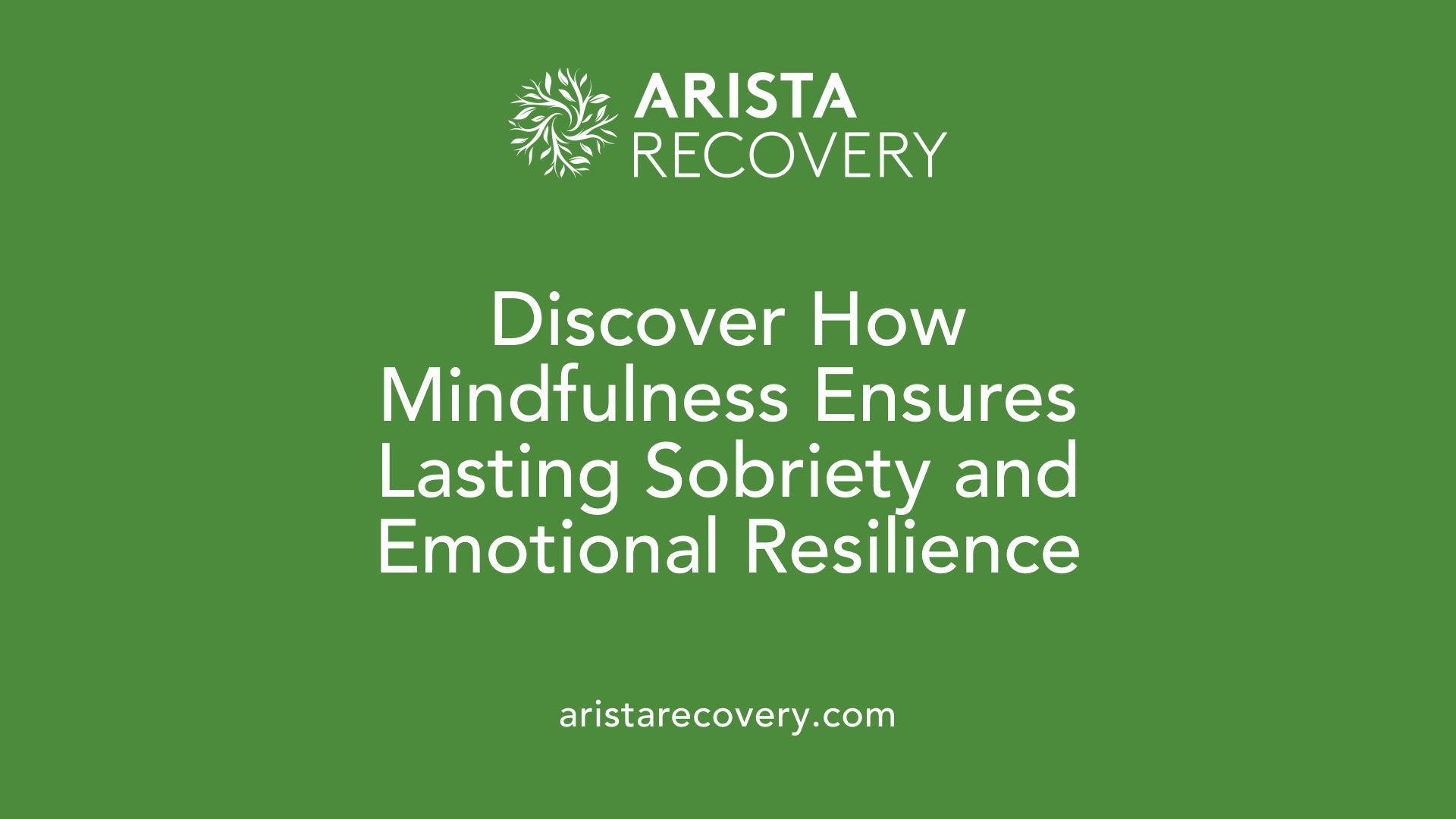
What are the benefits of mindfulness in addiction recovery?
Practicing mindfulness offers numerous advantages for individuals on the path to sobriety. It promotes relaxation and helps regulate emotions, reducing feelings of stress, depression, and anxiety which often trigger relapse.
Mindfulness can physically reshape the brain by increasing gray matter density in areas responsible for learning, emotional regulation, and perspective-taking. This brain plasticity enhances cognitive flexibility and self-control.
Furthermore, mindfulness fosters emotional resilience, equipping individuals to manage setbacks more effectively and maintain a calm, balanced outlook.
Incorporating mindfulness practices into daily routines supports a holistic approach to healing. It encourages ongoing self-awareness and self-compassion, both critical in avoiding old habits.
Regular mindfulness practice not only strengthens mental health but also builds a solid foundation for long-term sobriety. As individuals improve their ability to recognize and respond thoughtfully to cravings and emotional challenges, they decrease their risk of relapse and create a sustainable recovery journey.
Embracing Mindfulness for a Resilient Recovery
Integrating mindfulness techniques from DBT into addiction recovery offers a scientifically-supported pathway to greater self-awareness, emotional stability, and relapse prevention. By cultivating present-moment awareness, managing cravings, and fostering self-compassion, individuals can build a resilient foundation for long-term sobriety. Whether through specific exercises like mindful breathing, body scans, or developing the skill of Wise Mind, mindfulness empowers those in recovery to navigate life's challenges with clarity and confidence. As part of a comprehensive treatment plan, these practices serve not only to reduce immediate symptoms but also to fortify mental health and emotional resilience, ensuring a healthier, balanced life beyond addiction.
References
- DBT Therapy Techniques for Substance Abuse | Addiction Rehab
- Mindfulness-Based Therapies for Substance Use Disorders
- 5 Mindfulness Practices for Addiction Recovery | Hazelden Betty Ford
- Link Between Detox and Mindfulness During Withdrawal
- Power of Mindfulness in Addiction Recovery | RACNJ
- Mindfulness-Based Therapy | Recovery from Addiction or Mental ...
- Mindfulness Therapy (MT) for Addiction: Definition, Types, Uses ...
- DBT Techniques for Treating Substance Use Disorders
- Dialectical Behavior Therapy (DBT) for Addiction Treatment
When mental health challenges and addiction intersect, it can feel isolating. At Arista, we offer compassionate, evidence-based, and trauma-informed care to help you heal, grow, and move forward.
You’re not alone in this.
When mental health challenges and addiction intersect, it can feel isolating. At Arista, we offer compassionate, evidence-based, and trauma-informed care to help you heal, grow, and move forward.
Support that moves with you.
You’ve taken a brave first step. At Arista Recovery, we’re here to help you continue with best-in-class care designed for long-term healing and support.
.webp)






